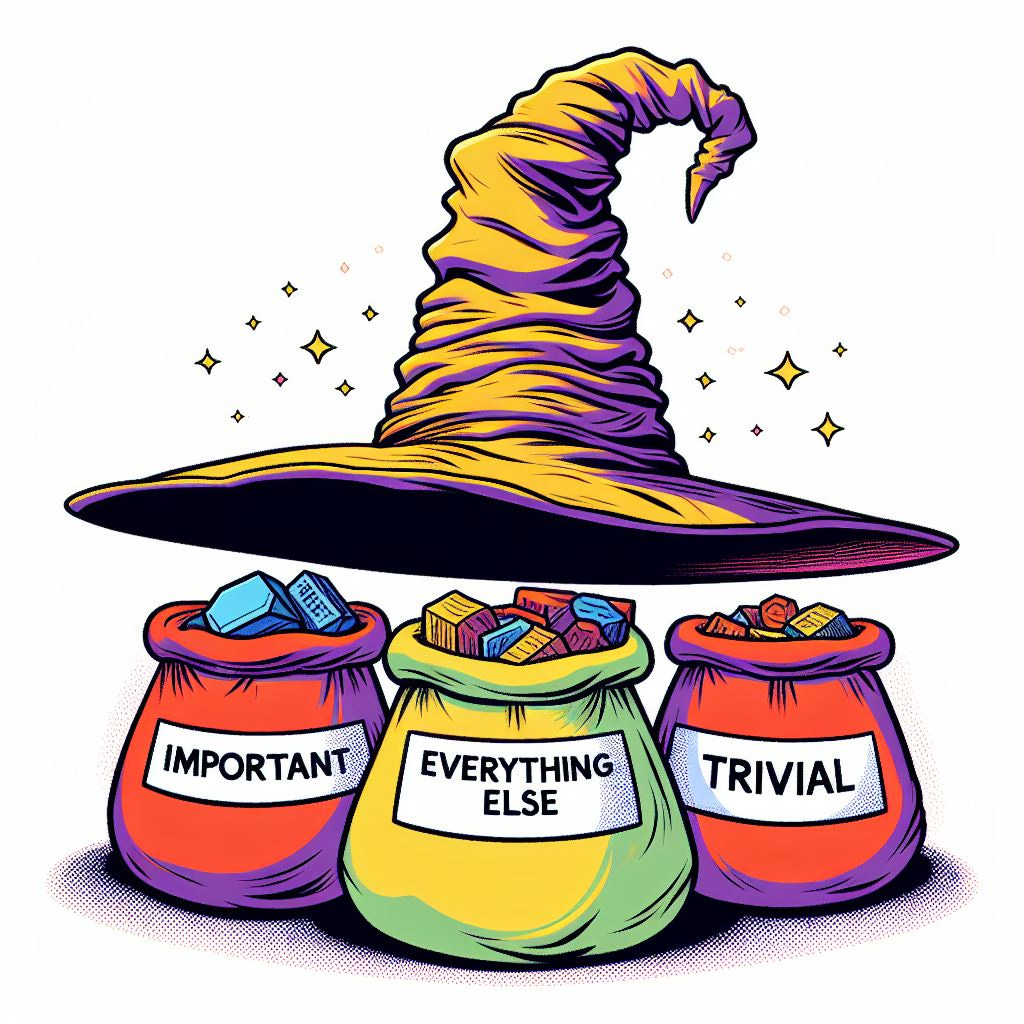In my last post, I went way down the rabbit hole of exploring AI as a tool for writing. When I started this series, I hoped to communicate some important insights about making great decisions that are unexpected and worthwhile. Sharing my experience with AI as I created the article was meant to be informative and fun, but it derailed my thought process’s original purpose So, let’s zoom out a bit and restart with a different perspective.
Some True Things
The decisions you make determine the life you’ll get. Better Decisions = Better Life.
No one has unlimited reserves of time, energy, or resources. If you want to make the best use of your efforts, focus on the things that are in your control or that you can influence.
Three major things influence results.
Random Chance: Random things happen that affect your results. To improve your results with randomness, make choices that take probability and risk into account.
The Choices You Make: Everything else being equal, better-quality choices have better results.
Starting Position: If you start with money, education, a great reputation, and the ability to learn, your results (the outcomes of your decisions) will be better. Every choice you make affects your starting position for the next decision. This is a cumulative advantage (or disadvantage if you make bad choices).
Starting position matters and can be improved. Seek ways to improve your current situation. This could mean building savings, getting insurance, keeping up with your vaccinations, exercising, learning, flossing, or improving any dimension of your life.
Some choices have an outsized effect on our lives. Finding and focusing on those choices where your efforts will be most effective makes the best use of your limited energy.
Small changes in either a positive or negative direction accumulate over time and lead to better or worse outcomes. A small change at the beginning can result in a large difference at the end.
Every choice you make affects your starting position for the next decision. A better position might mean having more money, a better education, or just being the person more likely to be picked for a project.
Where to Put Your Efforts
The big, impactful choices like who your spouse will be and what career to choose always deserve a serious decision process (and the work that goes into it). No extra effort is needed here because you’re already paying close attention to the critical stuff.
The trivial decisions, such as where to eat dinner, have no long-term impacts. You can improve those choices a bit by making yourself a personal rule and pre-committing yourself to a rule to avoid desserts except on weekends, for example. Commit when you’re not tired or hungry. Still, don’t waste effort on these. Flip a coin and get on with life.
Most of the day-to-day choices we need to make fall well below the bar of being life-altering. Some don’t matter at all in the long term. Choices that are hard to identify as important can have big impacts over time and usually fall into the category I call “Everything Else”.
How do we decide what to spend efforts on?
We can’t know in advance, but we can minimize the effort we put into each choice, put up guardrails to prevent disaster, and improve the quality of each choice.
First and most important: Take a moment, step back, and triage how much effort it’s worth. Here’s a suggested way to sort:
Trivial choices - No long-term effects or easily reversible. Just flip a coin, go with your preference, or pre-commit to try something new every once in a while. No effort is needed.
Life-changing, important, consequential, permanent, or high-impact choices - This sort of problem requires a full-on conscious decision process.
Easy choices - Any choice that has a single, obvious best approach. These are the “no-brainer” choices. The only real work here is to put up safeguards (to notify you if conditions change or results aren’t what was expected) and reduce identifiable risks.
The middle ground - Not high-impact or particularly risky but not with a clear best choice. This is the majority of decisions we need to make. It goes into the “Everything Else” sack.
Habits and small choices - What we eat, how we exercise, and many small, repeated behaviors. They go into the “Everything Else” sack too.
The first three types of choices are simple to sort. For our “Everything Else” category, we’re left with those choices that have some impact, may have cumulative long-term consequences, or where there’s no way to know what you need to make an “optimal” choice. These are worth spending a little effort on, but not worth the deep dive of a major decision process.
You’ve just done one of the two hardest things about any decision. You have stepped back from it for a minute to consider how impactful it might be. You’re off to a better start already.
Everything Else
Here’s a thought experiment. Imagine you can make a small improvement in decision-making that results in a slightly better outcome on average. What would that do to your life over time?
If you used that improvement on trivial decisions, it wouldn’t mean anything at all. Making better choices about things that don’t matter over time is a waste of effort.
If you used that improvement on the “MAJOR” decisions only? You’re already aware this is a major decision. You should be doing a full-court press on it.
A very small boost on the “Everything Else” decisions would result in improving most of the choices you make, resulting in more gain for less effort.
But no one in their right mind would want to obsess over things like habits or small day-to-day choices…
… unless there’s an easy way to make better choices without wasting time or effort.
In our thought experiment, we’ve looked at which type of choices to focus on for the maximum impact. The “Everything Else” and “Habits and small choices” categories make up most of the load. Putting effort there is going to be worthwhile if we can find reliable ways to make those choices better without having to process everything individually.
This is where a “bulk processing” method to improve decisions is useful. This is where you’ll find that great “Rules of Thumb” can be your superpower.
3 Rules to Start With:
You are responsible.
Look before you leap (Triage).
Don’t do stupid! (Risk Management).
In my next post, we’ll dig deeper into picking great rules of thumb, see why making decisions and pre-commitment while you’re at your best is a wonderful choice, and discover how to deal with the hardest thing about making great everyday decisions.







